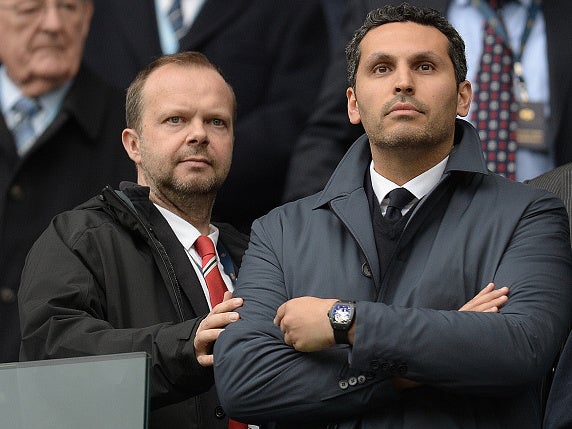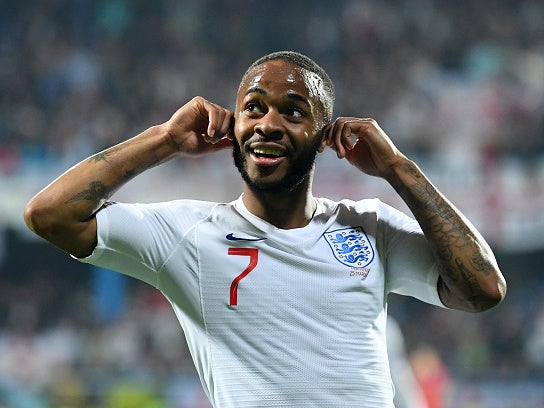Why modern football’s impact off the pitch has become just as important as the game itself
The sheer size of the football’s popularity brings more basic human and social issues and it is impossible for the sport to go untouched by geopolitics

Your support helps us to tell the story
From reproductive rights to climate change to Big Tech, The Independent is on the ground when the story is developing. Whether it's investigating the financials of Elon Musk's pro-Trump PAC or producing our latest documentary, 'The A Word', which shines a light on the American women fighting for reproductive rights, we know how important it is to parse out the facts from the messaging.
At such a critical moment in US history, we need reporters on the ground. Your donation allows us to keep sending journalists to speak to both sides of the story.
The Independent is trusted by Americans across the entire political spectrum. And unlike many other quality news outlets, we choose not to lock Americans out of our reporting and analysis with paywalls. We believe quality journalism should be available to everyone, paid for by those who can afford it.
Your support makes all the difference.In so many ways, there is nothing like today. The start of a new season is that rare time in football when every supporter can look on everything with hope, and nothing is yet spoiled by specific realities like results or actual football.
In so many other ways, though, there’s never been a time like now. This is a new era in football where any hope is already inherently compromised by longer-term realities of the game. Far from what was the case for decades in this sport, where supporters could go into a season legitimately believing this could be the year their team does something special, the brutal current reality is that many go in without any hope at all. Many already know their place, and pretty much where they’ll finish because it is fixed by the numbers of their accounts.
That is because of the growing financial disparity in the game that has now become an epidemic problem in so many leagues, often making this most gloriously unpredictable of sports all too predictable. The same root reasons for that have opened a space where virtually any type of owner can buy a club, creating a host of problems for so many up and down the football pyramid. It is one other reason so many supporters go into this season without hope - especially those at Bolton Wanderers and Bury - and instead with just another huge concern.
The champions don’t really suffer from either of these problems, but fully reflect both. The team that set the standard appropriately here set the tone for the entire game. Manchester City’s Abu Dhabi owners ensure they have far greater resources than anyone in England, but also provoke great questions about ownership since so many experts on the Middle East assert that the primary aim of the entire project is as an expression of soft power. Again, there is the possibility that the emotional celebration of any City victory also represents an unthinking applause for a foreign policy exercise from a state that has been criticised for the gravest human rights abuses.
When elements like this are included in articles on football - as happened with this very publication after the FA Cup final - there is always one fair question in response, usually from supporters of the relevant team. “Why is this appearing on the sports pages? This is what I’m trying to escape.”
That is kind of the point, though. Football has reached a stage in its history where it can’t just not escape such discussions because it is so fully enmeshed with them. The game has never been more politicised, never been so surrounded by so many genuinely serious issues.
It is why, although we’d love to indulge in one of those season previews celebrating that rare hope this time of year brings - and that thrill the fundamental playing of the game does still bring out - it is much more important to reflect on these issues. Some of them are relevant to the very playing of the game and its future. Some of them are relevant to the game’s place in wider society, and its use.
This is precisely why this stuff appears on the sports pages. This is why we’re writing about such issues. Football media can’t just write about what’s on the pitch, because what happens off the pitch fully dictates what happens on it, and that has all manner of influences - right down to the internal machinations of states looking to improve their tainted international image. Similarly, it is the responsibility of football media to look at the game’s place in society and the wider influences of it, as much as just the football itself.

To paraphrase from The Wire, follow the ball and you get players, goals and trophies. But you start to follow the money - and the reasons these specific players are on the pitch - and you don’t know where it’s going to take you.
Not a lot of it, however, is good right now. It will certainly take you to uncomfortable questions, and potentially empty community stadiums, as more and more clubs have their futures threatened.
It is ironically but logically the unique and immense global super-popularity of the game - and specifically competitions like the Premier League - that has directly fostered these problems, and removed hope for so many supporters.
The game has grown to such a size that it is absolutely flooded with money, in a way no sport has never seen before… but naturally without any kind of international regulation in sight either. That has ensured the money only flows in certain directions, and mostly to the competitions and teams and figures that are already the most popular. It makes them bigger, while increasing the gap to everyone else, ensuring an ever-increasing concentration of resources, interest and thereby resources again. It is this that is putting so many clubs at risk, making so many competitions predictable and threatening the very structure of the game. This is why the super-clubs want more distribution of wealth towards them and fixed places in the Champions League so it more resembles the Super League they really want.

The swell of the game doesn’t just bring financial capital, but also connected social and political capital. And that brings interests far beyond investors purely looking to make money. It brings interests looking to make connections and statements.
It brings questionable sponsors and states.
The sheer size of the game’s popularity also thereby means that, more than any sport, it also brings more basic human and social issues.
It is impossible for the game to go untouched by geopolitics, but also by geoproblems. Peer into any particular corner of the sport, and there will be the issues of the surrounding area, too. The game is that prevalent, that deep.
Hence one of the English game’s biggest issues right now: racism. It says much that sources from Kick it Out state they were relieved that the 2018-19 season ended when it did because they feared a major incident. That is the tinderbox the game is in, but that is because it is in the tinderbox of the world right now. Brexit has obviously fed into this, forcing its social effects on the game, but then one of the next headaches for the game will be how it deals with the legal and technical effects of that madness.

It’s just another horror prospect for the new season. There's also the prospect of Saudi Arabia buying Manchester United. It does feel Big Football is approaching some kind of reckoning, a historical line in the sand.
Amid all of this, it should never be forgotten that there will always remain a purity to the sport, reflective of the way it is the purest ball game. There is no other pursuit that can see any single child, anywhere in the world, with anything even resembling a ball, just experiencing the joy of the game on its own.
There is also nothing like the electrical charge of attending a match. There’s nothing like the emotional release of a goal. There’s nothing like just playing.
But there’s also never been a time for the game like now.
Join our commenting forum
Join thought-provoking conversations, follow other Independent readers and see their replies
Comments